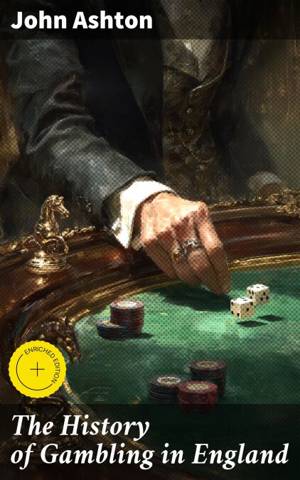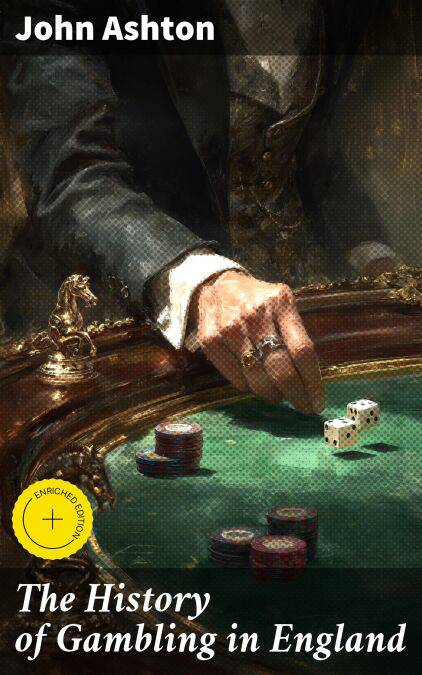
Je cadeautjes zeker op tijd in huis hebben voor de feestdagen? Kom langs in onze winkels en vind het perfecte geschenk!
- Afhalen na 1 uur in een winkel met voorraad
- Gratis thuislevering in België vanaf € 30
- Ruim aanbod met 7 miljoen producten
Je cadeautjes zeker op tijd in huis hebben voor de feestdagen? Kom langs in onze winkels en vind het perfecte geschenk!
- Afhalen na 1 uur in een winkel met voorraad
- Gratis thuislevering in België vanaf € 30
- Ruim aanbod met 7 miljoen producten
Zoeken
The History of Gambling in England E-BOOK
Enriched edition. Exploring the Evolution of Gambling in English Society
John Ashton
E-book | Engels
€ 0,49
Uitvoering
Omschrijving
In "The History of Gambling in England," John Ashton offers a comprehensive exploration of the evolution of gambling practices across the English landscape, from its medieval origins to the legal frameworks of the modern day. Ashton's literary style combines meticulous historical research with engaging narrative prose, making complex themes accessible. The book examines not only the societal implications of gambling'—its role in class stratification, morality debates, and economic impact'—but also the evolution of gambling establishments and cultural perceptions. Through his exhaustive compilation of anecdotes and legislative changes, Ashton contextualizes gambling within broader historical movements, showcasing its significance throughout English history. John Ashton, a noted historian and cultural critic of the 19th century, drew upon his extensive experiences as a playwright and journalist to pen this work. His unique background and personal interest in the intricacies of social behavior illuminated his research, allowing him to delve into the psychological dimensions of gambling as a reflection of human nature. This blend of lived experience and scholarly rigor situates Ashton as a pivotal figure in the study of gambling and its effects on society. This enlightening volume is highly recommended for scholars, students, and curious readers alike. Ashton's work not only enriches our understanding of gambling's historical trajectory but also prompts critical reflection on its present implications. Whether you are interested in the interplay between culture and vice or the legal nuances surrounding gambling, this book provides invaluable insights into an often-overlooked aspect of English heritage.
In this enriched edition, we have carefully created added value for your reading experience:
- Hand‐picked Memorable Quotes shine a spotlight on moments of literary brilliance.
- Interactive footnotes clarify unusual references, historical allusions, and archaic phrases for an effortless, more informed read.
In this enriched edition, we have carefully created added value for your reading experience:
- Hand‐picked Memorable Quotes shine a spotlight on moments of literary brilliance.
- Interactive footnotes clarify unusual references, historical allusions, and archaic phrases for an effortless, more informed read.
Specificaties
Betrokkenen
- Auteur(s):
- Uitgeverij:
Inhoud
- Aantal bladzijden:
- 248
- Taal:
- Engels
Eigenschappen
- Productcode (EAN):
- 4064066202224
- Verschijningsdatum:
- 18/05/2021
- Uitvoering:
- E-book
- Beveiligd met:
- Digital watermarking
- Formaat:
- ePub

Alleen bij Standaard Boekhandel
Beoordelingen
We publiceren alleen reviews die voldoen aan de voorwaarden voor reviews. Bekijk onze voorwaarden voor reviews.









